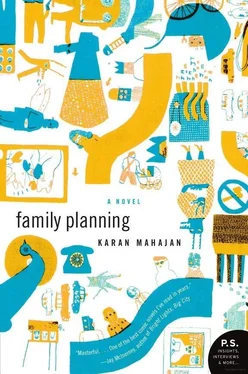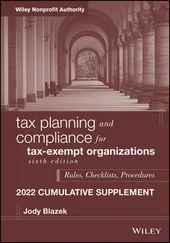Why in the world are we on this thing right now? Rakesh asked.
Why? she said.
Yes, why.
That’s easy, she said. I wanted to remember why I was screaming.
The scream came to him through layer after layer of time; the grief of losing Rashmi was the grief of having forgotten all the stories she was yet to tell him. The pain of telling Arjun about Rashmi would be that she could never be explained into existence.
“Does anybody else know about this?” Arjun asked.
He wanted to know if his betrayal was complete. He understood why his father had confessed to him while driving — you can’t get out of a moving car.
“Obviously, your Mama — I mean, Sangita — knows.”
The horizon was a dashboard, and his mind needled through the years with the mathematical energy of the speedometer. Only Mama knew. His betrayal was only one-thirteenth complete. Or two-fourteenth. Or one-seventh. He grew irritated. A brain, like a speedometer, never shut off; it quivered endlessly near 0.1.
“What about Varun, Rishi, Rita—”
“Yes, I told them today. I told them they must never ever treat you differently, and that if they did, I would give them hell.”
“Wonderful. So that’s how they’re going to love me more?” asked Arjun. “As a stepbrother?”
“No, beta. Half-brother.”
“I don’t want to live here anymore,” he said dramatically. “I want to go to America.”
“Beta—”
“No, I want to go,” said Arjun.
“Beta, you have never even been there. You don’t even know how it is, do you? This is just a childish insistence. Life there is very hard — no servants, no family, no social life — you’re always an outsider, you want that?”
“Papa—”
“And, besides, you have always told me that in Class 12, America will be a backup only, so why do you want to go there now? Is it because you were born there? Firstly, you are not a citizen anymore and you don’t have a visa and visa is hard enough to procure.” Rakesh had made sure to decline Arjun’s American citizenship as part of his elaborate cover up of Rashmi’s existence. “And, beta, what do you think you will feel when you go back? You have no memory of how it was, so what will you gain? And what will you remember? That your—”
“Papa—”
“That your Mama died there?” said Mr. Ahuja. “Listen to me right now. There is nothing in America that there is not here. Don’t think you can just leave all the people you love and go away somewhere else. You can go once you’re old enough to take care of yourself, but you’re not right now and that’s all.”
“I’m old enough. I’m almost as old as everyone else who goes.”
“Beta, that’s not it, you are not grasping my point! Look at me. I returned, right? I saw America and I saw India, and I came back and decided to help the people and how sad will it be if my own children are leaving this country? What’s the point of trying to make this country a better place if all the smart people leave?”
“But you didn’t come back for India. You said you came back because your wife died.”
CHAPTER 19. DRIVEWAY DECISIONS
WHEN THEY ARRIVED HOME, Arjun ended their mutual brooding with a loud clang of the passenger door and jogged off toward the house. Mr. Ahuja let it pass. The car was comfortable, its headlights fixating on the cracks in the driveway, the nocturnal chains of ants heave-hoing over hillocks of moss. Mr. Ahuja adjusted his tired eyes to the squat off-white colonial house and his soaked collar to the rapidly-evolving tropical weather in the car. What a screw-up. He was a fool to have waited so long to tell Arjun. To have waited till the point where his son had mastered the means, the vocabulary, to hurt him back. Waited till the brink of his son’s independence, offering this news like a parting shot.
But he had to be objective about himself: He had been so bloody tortured. How exactly would he have told him? And hadn’t he assumed that the year-by-year erosion of memory would help him get over Rashmi — make it easier for him to spill the secret? But he hadn’t gotten over Rashmi one bit, and how could he? How could he if he’d married a woman like Sangita?
It was an awful thing to admit, but he was plain ashamed to be seen with Sangita. Marrying her was charity enough. For a man who was a champion of form — a man who shivered like a newborn baby when you whisked him down a flyover, a golfer who’d once spent ten minutes on his knees on a golf course just patting up the evenness of the grass, a spectator who marveled year after year at the symmetry of soldiers during the Republic Day parade, a man for whom form was religion —he’d gotten stuck with the least elegant woman possible. Still his mind soldiered on. His body and brain collaborated to ignore her formlessness. Even then, he couldn’t forget Rashmi: when they weren’t having sex, Sangita was the very manifestation of his betrayal — in remarriage, in life. Together they lived in a giant house where the lights were constantly blowing their fuses, and you stood in silence with one hand on a light switch while above the bulb burst into sublunary flames. Then vanished. She was the element of dark irony in his life. She made God’s revenge on him — one dead wife, one switched wife — comical. And now, after Arjun’s intrusion, even the possibility of sex had dried up.
Recoiling from the image, Mr. Ahuja grasped the steering wheel, inhaled the dead-animal musk of the car, ventilated his senses. Sangita’s face thus forgotten, there remained an overpowering notion in the anterior chamber of his nose. Entering the brain. The understanding that if he ever wanted to have sex again, it would have to be outside the house. The house was the problem, not sex.
He was parked in his own driveway. He could back out at will. He could follow the overhead power lines to a home spasming with light. He’d have an affair. He’d have many affairs. He was one of the most powerful men in Delhi. So what if he was only attracted to pregnant women. He could change, disengage from his fantasies. Or if not change, then arrive at a compromise: proposition bloated women who felt unloved, misshapen, fart-ready. Remind them that it was safe for them, too, to have affairs. That the sex was never better, and they couldn’t get pregnant if they were already pregnant.
But what if he was only attracted to women who carried his children? What would he do then? Divorce Sangita? Remarry? Find a younger girl? Repeat the cycle? Father fifty-five children? Father a nation?
Rakesh Ahuja! You fool!
The case thus closed, he loosened his grip on the gearshift and pondered more practical matters.
How would the children respond if Arjun attacked them with this information about the bride-switch? Would they stick to Mr. Ahuja’s instructions, not ostracize him? And Sangita, what would she think? He wished now that his children didn’t have to witness what would transpire with Arjun; he wished, in fact, that they were all unborn, and his thoughts turned on the baby that was due in September. He focused all his hopes on that child. He’d get that one right. The baby was still a precious lump in Sangita’s stomach, but it would eventually be born, and in its ferocious struggle to escape the womb, Rakesh would witness a celebration of his own power, his howling love for life, his lust, his virility — yet, the baby, when it finally woke to the world and came of age, would know him, Mr. Ahuja, only in the twilight of his life.
If only he could speak to the child now. If only he could tell the child his dreams and fears and ambitions. If only he could lay his head on that smooth surface and whisper…
Читать дальше












